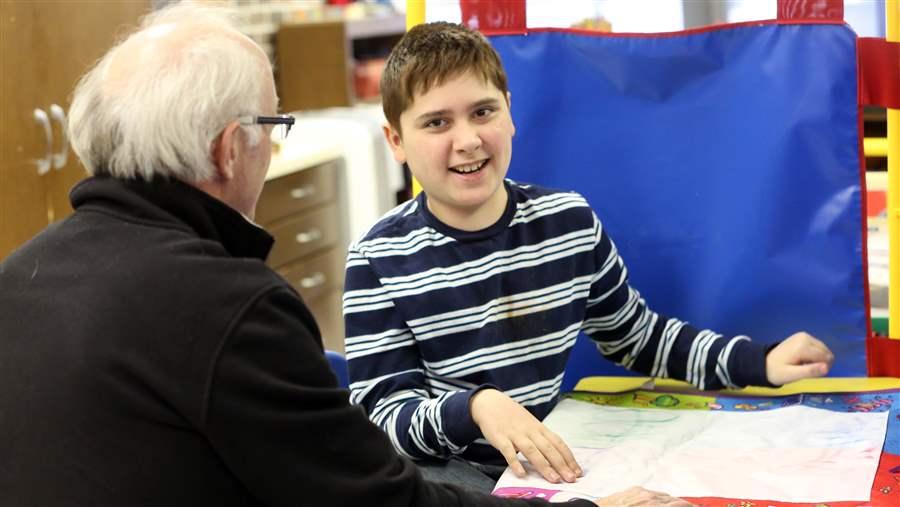Special Education Case at Supreme Court Could Prove Costly for Schools

A fifth-grader with autism at an elementary school in Dubuque, Iowa. Advocates for disabled students say the absence of national standards means children in some states get a better education and more services.
© The Associated Press
The Supreme Court review of a battle between the parents of an autistic child and his Colorado school district could help raise the standards of education for some of the more than 6 million disabled schoolchildren across the United States. But it could also prove expensive for already cash-strapped school districts.
Federal law guarantees disabled students a free and appropriate public education, but precisely what that means isn’t well defined. Federal judges often have had different interpretations of what they’re entitled to, something lawyers for the Colorado family and other advocates for disabled students say leads to better education and more services for disabled children in some states than in others.
But some groups that represent school administrators fear that setting a national standard would prompt more parents to demand additional services for their children, leading to costly court battles and forcing schools to spend more on therapies or pay for disabled children to attend private school.
“Disabled people and their families say kids are not getting the help they need,” said John Pitney, a political science professor at Claremont McKenna College and the author of The Politics of Autism.
“School districts want to provide services,” Pitney said. “But they have limited resources and they’re afraid that this case will trigger trade-offs that they won’t like, that money they spend on this is not going to be available for other purposes.”
The case, named for a 17-year-old student who is referred to as Endrew F. in court documents, is slated to be heard by the justices in January. The legal battle largely boils down to whether disabled children are entitled to “some educational benefit,” as the 10th U.S. Circuit Court of Appeals ruled in the Colorado case, or whether schools should meet a higher standard and provide a “meaningful benefit” to students, as federal appellate courts in the 3rd and 6th circuits have ruled in cases from Pennsylvania and Tennessee.
The federal law under review covers children with 13 types of physical, mental, emotional and behavioral disabilities. Children with nonphysical disabilities, including learning disabilities and autism, make up the bulk of students covered.
Gary Mayerson, a lawyer on the board of the advocacy group Autism Speaks, which submitted a friend-of-the-court brief siding with Endrew’s family, said schools should spend more now, in the wake of a rise in diagnoses of autism since the 1990s. It’s ultimately in the state’s financial interest to avoid expenses that come with caring for disabled adults, he said.
“They should be investing whatever funds necessary to produce students who graduate to something that’s meaningful for them — greater independence and greater self-sufficiency. They’ll spend way less later on,” he said.
Legal Language
Congress tried to make schools more accessible to disabled students in 1975, and that law has evolved into what is known today as the Individuals with Disabilities Special Education Case at Supreme Court Could Prove Costly for Schools:
